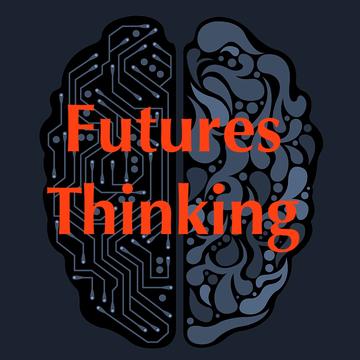Futures Thinking
FUTURES THINKING NETWORK

This network was funded from 2018 to 2020.
In literature, in popular media, in scientific research, and in public consciousness, discourse about the future, machine learning, and the human elements of digital technologies proliferates more now than ever before. Thanks to developments in artificial intelligence (AI), we are able to speculate about how our fundamentally social species might interact with performatively human-like machines of our own making. Television shows like Black Mirror and The Handmaid’s Tale, and novels like The Circle or Never Let Me Go speculate about dystopian futures that reflect political realities not unlike those that are currently unfolding in the Global North.
Ethics in AI are much debated in science fiction. However, the scholars in the fields of AI and those in literature, history, and gender studies seldom interact to discuss the realities and probabilities of the future of a technologically advanced mankind. Crucially important to our network is the recognition of how narrative informs and shapes the future. Bringing scholars of historical and literary narratives into conversation with ethicists and developers of digital AI technologies is of paramount importance to futures thinking.
Discussion on AI and global governance is thriving at Oxford, while speculative fiction is an important emerging field in literary studies. This network brought these fields into conversation. We extended from exploring speculative fiction research, questions about the robustness of machine learning, the future trade-offs between privacy and security, to thinking about how we might use historical feminist consciousness-raising methods to engage in interdisciplinary collaboration.
We were keen for interested parties to join our group so if you worked on or were interested in any aspect of futures thinking, be it in science or the humanities, in any of the University’s divisions, you could contact us and come along to our events!
We were a network founded on principles of access and inclusion, and strived to host events that consider the lifestyle ethics and carer-responsibilities of our members and attendees, as well as their access needs, pronouns, and other inclusion needs. You could contact us for further information on our manifesto.
We organised regular discussion events, consciousness-raising workshops, and networking opportunities. We were also eager to support conversations across disciplines and welcomed any collaborations!
If you were interested in joining our steering committee, wanted to co-host an event with us, join our mailing list, or offer any suggestions for things you would have liked to see happen in Futures Thinking, you could contact us at futuresthinking@torch.ox.ac.uk.
Founder/Main Contact:
Co-Convenors:
Convenors:
Chelsea Haith
Dan Holloway
Ilan Price
Christina de Bellaigue
Robert Iliffe
Anne Ploin
Alice Billington
Christopher Burr
Futures Thinking Network

- AI and art
- Creativity and technology
- Narrativising the digital self
- Selves and others online
- Histories of AI
- Fiction and technology
- Copyright and access to ideas
- Programming bias
- Using AI to shape media
- The future of publishing
- Science fiction
- Urban planning
- Mental health and the future


